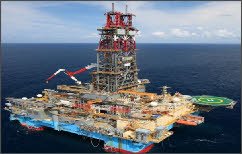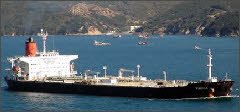
Services to World Local Market

Below fuels are available on FOB or CIF bases.
• Bonny Light Crude Oil
• Saudi Light Crude (ARAMCO)
• D2 DIESEL GAS OIL L-
• HSD2 GAS OIL L-
• MAZUT M100 GOST 10585-
• MAZUT M100 GOST 10585-
• JET FUEL JP54 (AVIATION KEROSENE COLONIAL GRADE 54)
• JET FUEL JPA1 (AVIATION KEROSENE COLONIAL GRADE A1)
• REBCO RUSSIAN EXPORT BLEND CRUDE OIL GOST 9965-
• LPG (LIQUEFEID PETROLEUM GAS) GOST 20448-
• LNG (LIQUEFEID NATURAL GAS)
Should you require delivery and pricing please contact our customer service department.
Diesel or Diesel fuel in general are fuel used in diesel engines. The most common are specific fractional distillate of petroleum fuel oil, but alternatives that are not derived from petroleum, such as biodiesel, biomass to liquid (BTL) or gas to liquid (GTL) diesel, are increasingly being developed and adopted.
JP54 Refiners
Centro de Refinación de Paraguaná" (CRP) is the world largest JP54 refinery complex and is operated by PDVSA in Venezuela with a production capacity of 956,000 barrels per day.
Saudi Aramco; a state-
Lukoil is Russia's largest oil company and its largest producer of oil. In 2006, it produced 95.2 million metric tons of oil.
You can view the latest price of Oil @ http://oil-
INCOTERMS 2000:
When commercial traders enter into a contract for the purchase and sale of goods they are free to negotiate specific terms of their contract. These terms include the price, quantity, and characteristics of the goods. Every international contract will also contain what is referred to as an Incoterm (international commercial term). The Incoterm selected by the parties to the transaction will determine which party pays the cost of each segment of transport, who is responsible for loading & unloading of goods, and who bears the risk of loss at any given point during a given international shipment. Incoterms also influence Customs valuation basis of imported merchandise. Incoterms are overseen and administered by the International Chamber of Commerce in Paris and are adhered to by the major trading nations of the world. There are currently 13 Incoterms in use, and they can be considered on the basis cited above.
Free On Board (FOB)
The seller (exporter) is responsible for delivering the goods from his place of
business and loading them onto the vessel of at the port of export as well as clearing
customs in the country of export. As soon as the goods cross the «ships-
Cost, Insurance & Freight (CIF)
The seller (exporter) is responsible for delivering the goods onto the vessel of transport and clearing Customs in the country of export. He is also responsible for purchasing insurance, with the buyer (importer) named as the beneficiary. Transfer of ownership takes place as the goods cross the ship's rail. This if goods are damaged or stolen during international transport, the buyer owns the goods and must file a claim based on insurance procured by the seller. The buyer must clear customs in the country of import and pay for all other transport and insurance in the country of import. CIF can be used as an Incoterm only when the international transport of goods is at least partially by water. If FOB is the Customs valuation basis, the international insurance and freight costs must be deducted from the CIF price. A CIF transaction will read CIF, port of destination. For example, assuming that goods are exported to the port of Novorossiysk, a CIF transaction would read «CIF Novorossiysk».
Cost & Freight (CFR)
The seller (exporter) is responsible for clearing the goods for export, delivering the goods past the ships rail at the port of shipment and paying international freight charges. The buyer assumes ownership/bears risk of loss once the goods cross the ship's rail, and must purchase insurance, unload the goods, clear customs, and pay for transport to deliver the goods to their final destination. If FOB is the Customs valuation basis, the international freight costs must be deducted from the CFR price.

